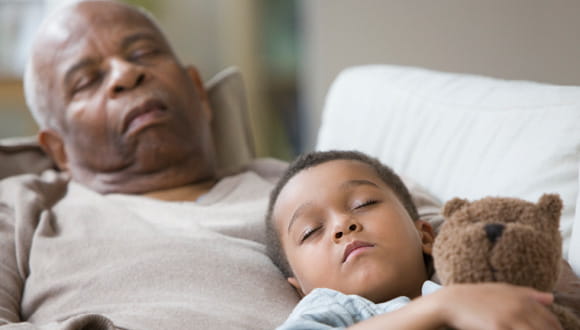Every person is unique, coming from all walks of life and backgrounds. But there’s one thing we all need: sleep. In fact, according to the Centers for Disease Control and Prevention (CDC), sleep deprivation is associated with a number of chronic conditions, including:
- Cardiovascular disease
- Depression
- Diabetes
- Obesity
While sleep is vital, many people either struggle getting enough of it, or aren’t aware of how much sleep they should be getting each night.
How much sleep do you need?
Age has a lot to do with the amount of sleep we should be getting. In fact, the CDC recommends the following hours of sleep based on age:
- Newborns: Birth to 3 months, 14-17 hours (including naps)
- Infants: 4 to 12 months, 12-16 hours (including naps)
- Toddlers: 1 to 2 years, 11-14 hours (including naps)
- Preschool: 3 to 5 years, 10-13 hours (including naps)
- School-age: 6 to 12 years, 9-12 hours
- Adolescents: 13 to 18 years, 8-10 hours
- Adults: 18 to 60 years: 7 or more hours; 61 to 64 years: 7-9 hours; 65 years and older: 7-8 hours
Keep in mind, however, that every person is different. While you might feel great after receiving seven hours of sleep, your friend might need eight to feel refreshed. So, adjust your sleeping pattern accordingly — and speak to your doctor if you have any questions.
Tips for improving your sleep
Getting enough sleep can be difficult due to hectic work schedules, stress and a variety of other reasons. So it’s very important to adopt healthy sleep habits. The National Sleep Foundation has a variety of recommendations, such as:
- Sticking to a sleep schedule of the same bedtime and wake up time
- Exercising daily
- Sleeping on a comfortable mattress and pillow (make sure to replace your mattress every 10 years).
If you consistently struggle with your sleep despite trying to follow healthy sleeping habits, it could be a sign of an underlying medical condition, such as:
- Insomnia: A sleep disorder that causes us to have trouble falling and staying asleep
- Narcolepsy: A sleep disorder that causes overwhelming daytime drowsiness
- Restless legs syndrome (RLS): A condition that causes an uncontrollable urge to move your legs
- Sleep apnea: A sleep disorder where breathing repeatedly stops and starts, often resulting in excessive snoring
In most cases, receiving treatment is vital to improve your sleep if you have one of these conditions. For example, people who have sleep apnea often are prescribed a continuous positive airway pressure (CPAP) machine, which uses a hose and mask or nosepiece to continuously deliver air to your body. This increases the air pressure in your throat, preventing your airway from collapsing when you inhale.
If you feel you may be suffering from an underlying condition that affects your sleep, reach out to your doctor for a diagnosis and any necessary treatment.
Getting a good night’s sleep will not only make you feel better the next day, but it may also help you avoid a variety of health problems. Make sure to follow healthy sleeping habits and reach out to your doctor if nothing seems to help.


